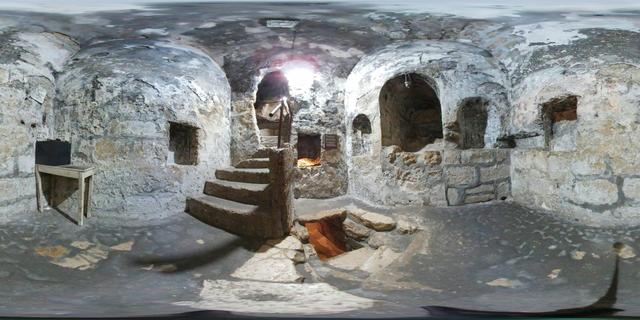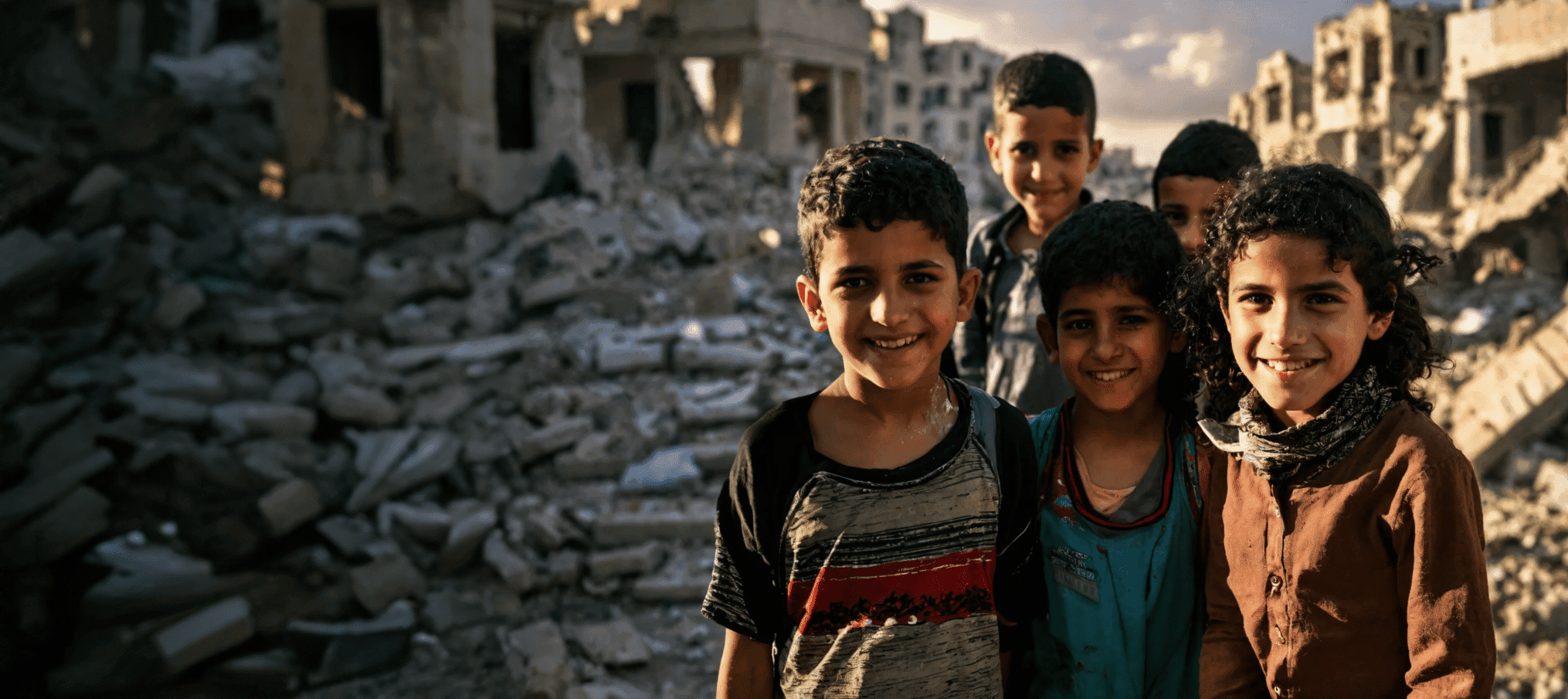This week we shared on our social channels two projects that we have carried out thanks to the contribution of the 8xmille funds to the Catholic Church, of which we have long been beneficiaries.
These are the project to assist Syrian displaced people after the February 2023 earthquake, and the one to activate educational integration paths for social and cultural development in Palestine.
But what is 8xmille? Is it different from 5xmille?
The 8xmille is the share that each taxpayer in Italy can allocate to the State or to a religious denomination. We at Pro Terra Sancta are not beneficiaries: as a secular reality belonging to the "third sector" – i.e. those entities that operate in the field of social interest – we are instead part of the shortlist of possible beneficiaries of the 5xmille, which we use every year to support our projects.
Every year, however, the Italian Catholic Church, through the Italian Bishops' Conference (CEI), allocates a part of the funds it receives thanks to the 8xmille to support social and welfare projects of various kinds: of emergency, humanitarian interest, protection of freedom of worship and religious and ethnic minorities. Pro Terra Sancta, for its welfare, educational and humanitarian objectives, is one of the realities that the CEI supports thanks to these funds.
The 8xmille and the 5xmille are not in contrast; indeed, they are two complementary contributions that can be assigned jointly, precisely because they benefit one of the State or religious bodies, and the other of third sector realities active in the social sector.
What do the 8xmille funds support, and how do they reach the Middle East?
There are three main destinations of the funds raised thanks to the 8xmille: support for religious and pastoral realities, the sustenance of diocesan priests and charity in Italy and in developing countries; it is precisely the presence of the latter category that means that every year a good part of the 8xmille funds are allocated to associations with social projects active in Italy and abroad.
A commitment that has been going on for some time is the support for migrants and refugees: since 1991 part of the funds has been destined to finance aid and reception projects in 31 countries around the world. These projects focus above all on supporting families forced to flee, and also deal with the activation of educational works, such as the creation of the University of Erbil, in Iraqi Kurdistan: without this opportunity for growth and change, many displaced young people would have been condemned to exile, to eternal flight from their country. Attention to war refugees is one of the threads that binds the CEI to the Middle East, a land of conflicts and painful migrations.
But the Holy Land and its inhabitants are a privileged point for the Catholic Church in other respects as well: no matter how many people leave their country, there are many who remain there, in appalling conditions. The local presence of small Christian minorities and the desire to support them, economically and spiritually, to make them feel seen and welcomed, increases the importance of the Middle East in the choice of projects to which the funds of the 8xmille are allocated. For this reason, our meeting with the Italian Bishops' Conference has been going on for some time, in a fertile collaboration that has given rise to some projects with a profound social impact.
Some Pro Terra Sancta projects carried out with the contribution of the 8xmille
The funds of the 8xmille have contributed to the creation of various assistance and humanitarian projects of Pro Terra Sancta.
One of these is A Name a Future , our project aimed at those children in East Aleppo who find themselves, orphans, without a name registered in the registry office. They are children of the abuses suffered during the war by Syrian women, children of a crime that is often seen by those around them as a personal shame, which makes them bearers of sin and unworthy citizens; but the lack of a name entails the lack of a social role, and therefore of the possibility of exercising one's rights. Their mothers are also deprived of the opportunity to work and study, and therefore, in a vicious circle, to offer their children an alternative future.
Being able to study and start working, perhaps starting their own business, represents a turning point for them: Manal is a testimony to this, who thanks to our Un nome un futuro centers has learned to read and write. "The first thing I had to learn was to learn how to hold a pen," he says, "because I didn't know how to do it. The center is life, for me," he continues, "because my life began when I set foot in here."
Manal cries, pronouncing these words: she is moved because Un nome un futuro has given her literacy, and therefore autonomy: now she has a new confidence in herself and a new possibility of personal and social redemption, for herself and for her children.
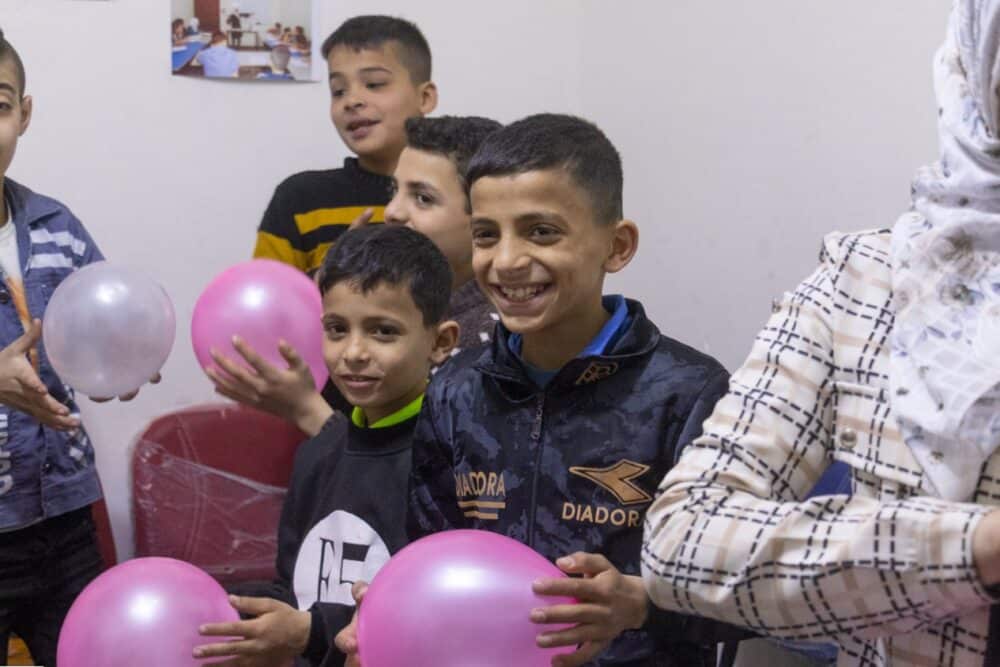
Also in Aleppo, the funds of the 8xmille financed the Minibus of Life: an old, slightly beat-up minibus, painted in a red paint that makes it visible even from afar, inside which the voices of children and teachers resound happily. The bus is an itinerant school, which goes around the streets of Aleppo and collects all those children who, forced by the violent and poor context in which they were born and raised, have always worked and have never been able to study.
One of them, Ahmed, eight years old and a shoemaker by profession, hopes to study "when I grow up to do a good job to be more useful to my family", who count on his small salary to survive. But Ahmed is a child, and the opportunity to grow and study, to have fun and play together with his peers is a fundamental part of his education. We want to give these children back a childhood, and lay the foundations for a better future.
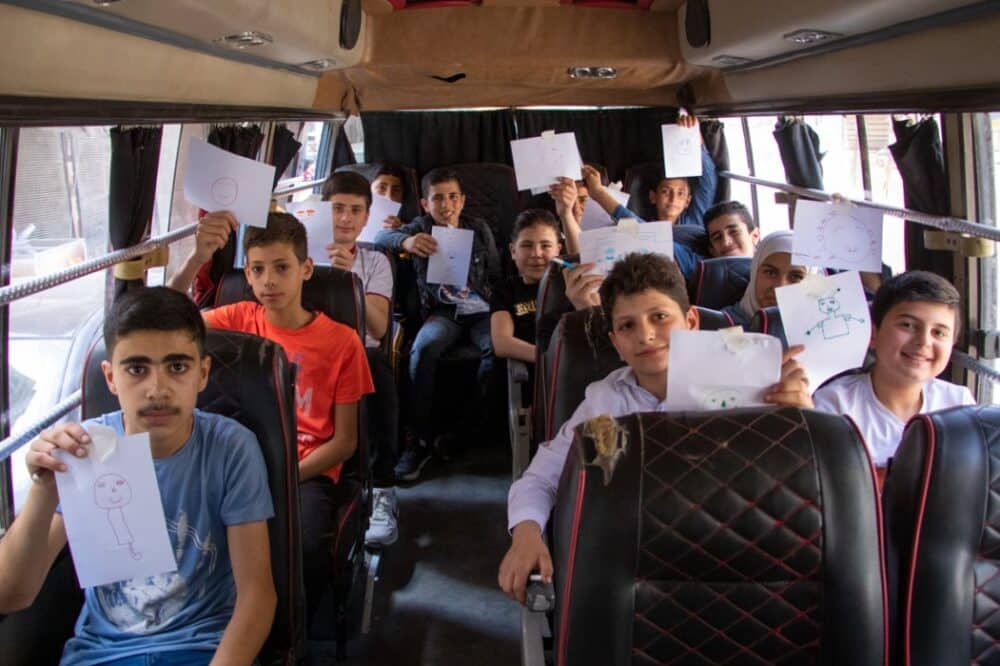
Last year, thanks to the contribution of the CEI funds of the 8xmille, we activated two projects: an educational one aimed at personal and professional training, in Palestine, and an emergency one, dedicated to Syrian displaced persons. The first is a rather innovative project: in Bethany we have created experimental archaeology activities, involving a group of about fifteen children between twelve and seventeen years old.
We believe in the importance of cultivating the relationship of young people with their land and their origins, so that they can deepen their knowledge of the artistic traditions of their country and thus become aware of the richness of their cultural heritage. Carla Benelli, our collaborator in charge of the projects in Bethany, explains that "This is a difficult age, especially in a context of daily conflict. We chose to try experimental archaeology to make these young people passionate about something."
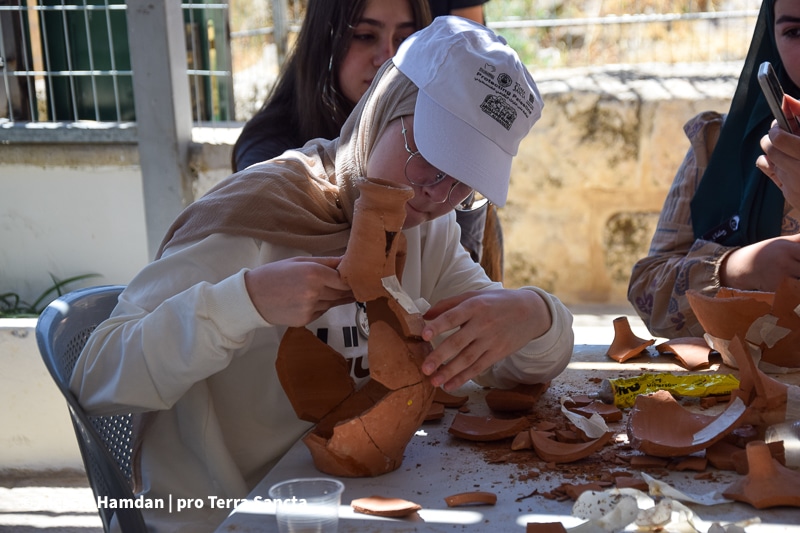
Supporting us means helping people like Manal and children like Ahmed, and the possibility of supporting us through your tax return is a way accessible to everyone. Allocating the 5xmille to Pro Terra Sancta allows us to make a direct contribution to our activities in the Holy Land, but giving the 8xmille to the Catholic Church is still a contribution, albeit indirect: the Church supports some of our projects, consequently supporting the Church means contributing to a donation that will allow us to give a name and a future to new children, a job and dignity for new women with stories of violence behind them, an artistic and cultural training for new young people eager to preserve their traditions and share them with the whole world. Join us in protecting the most fragile populations in the Middle East: donate your 8xmille to the Catholic Church, and your 5xmille to Pro Terra Sancta.






